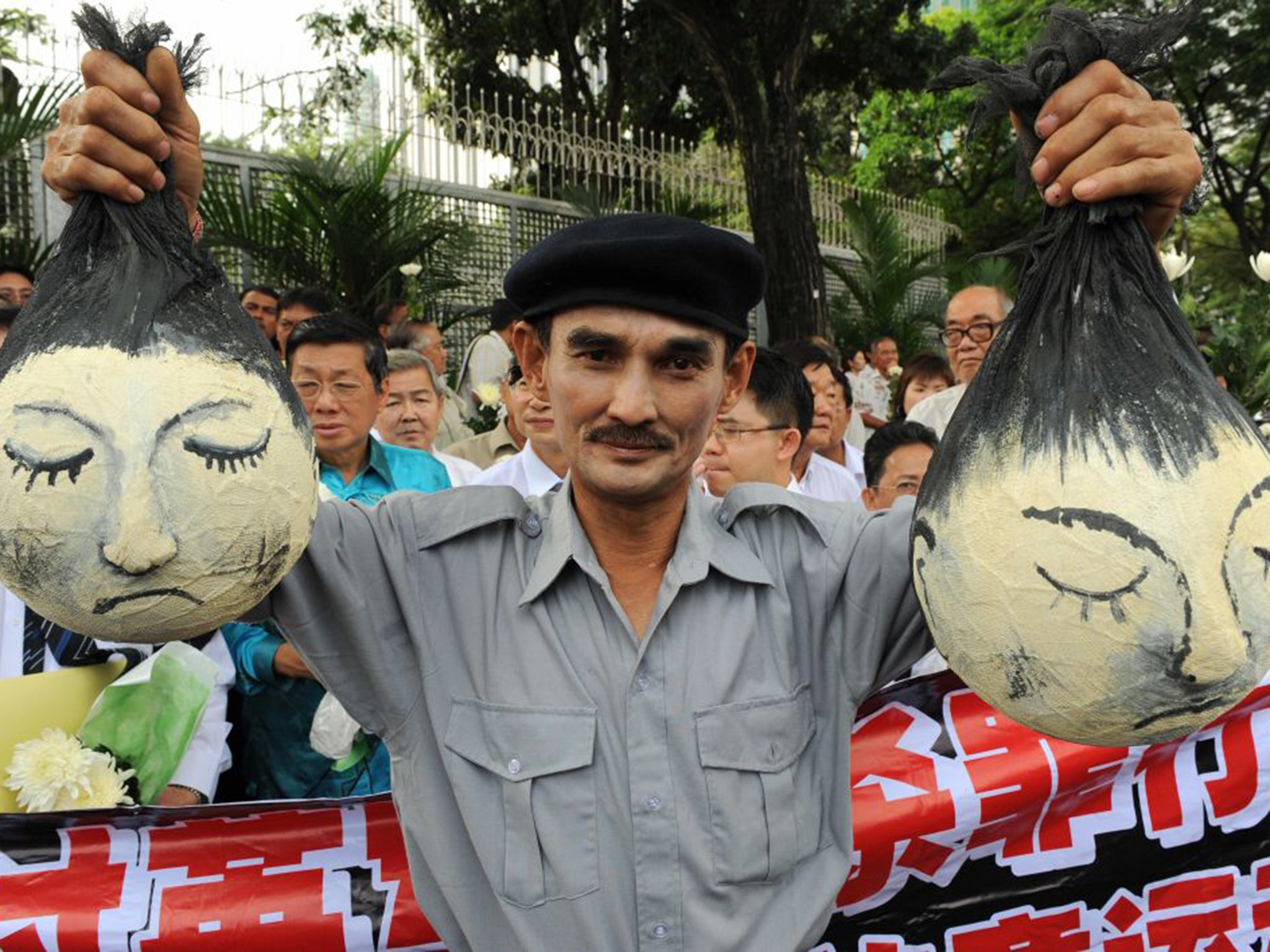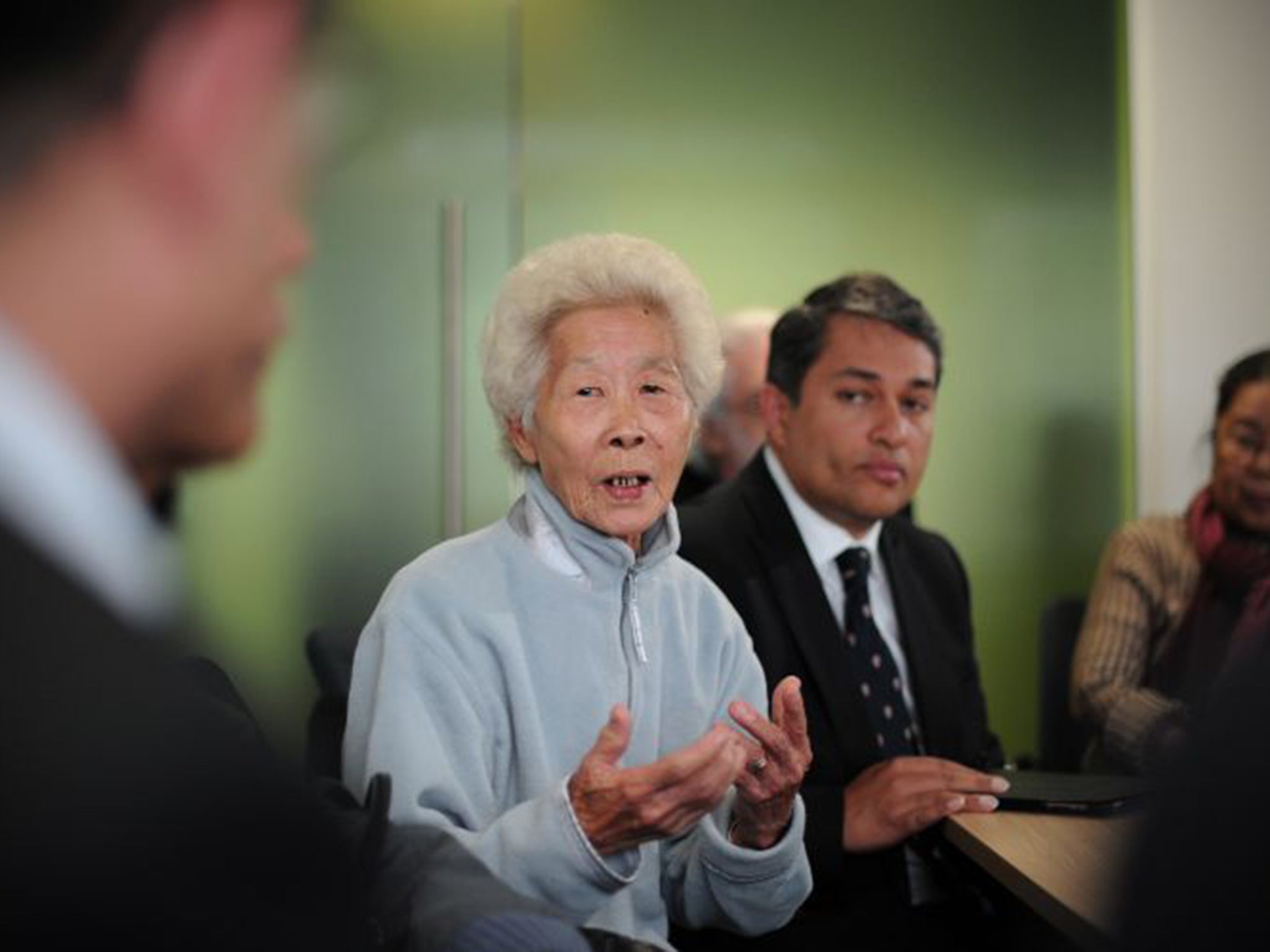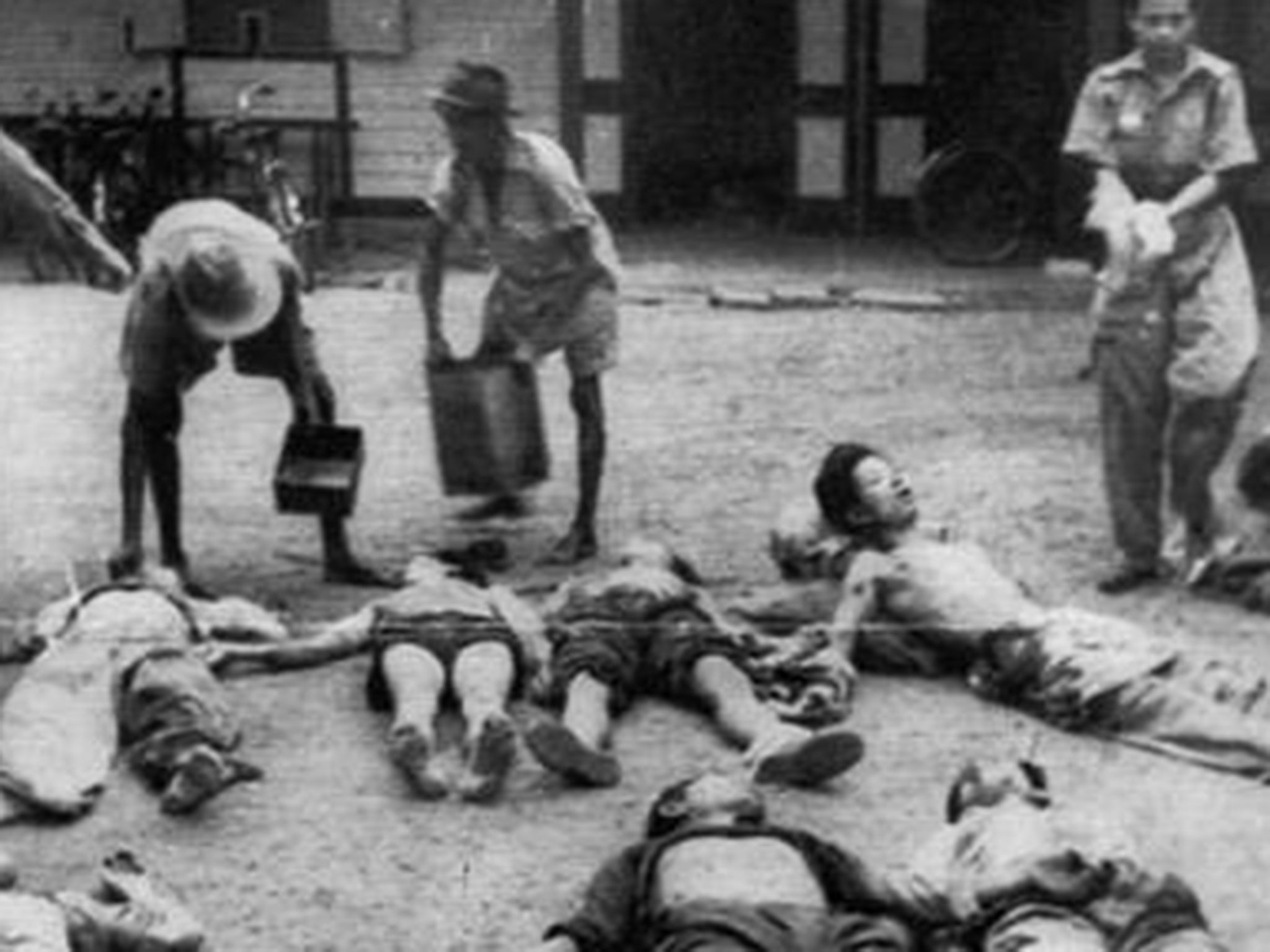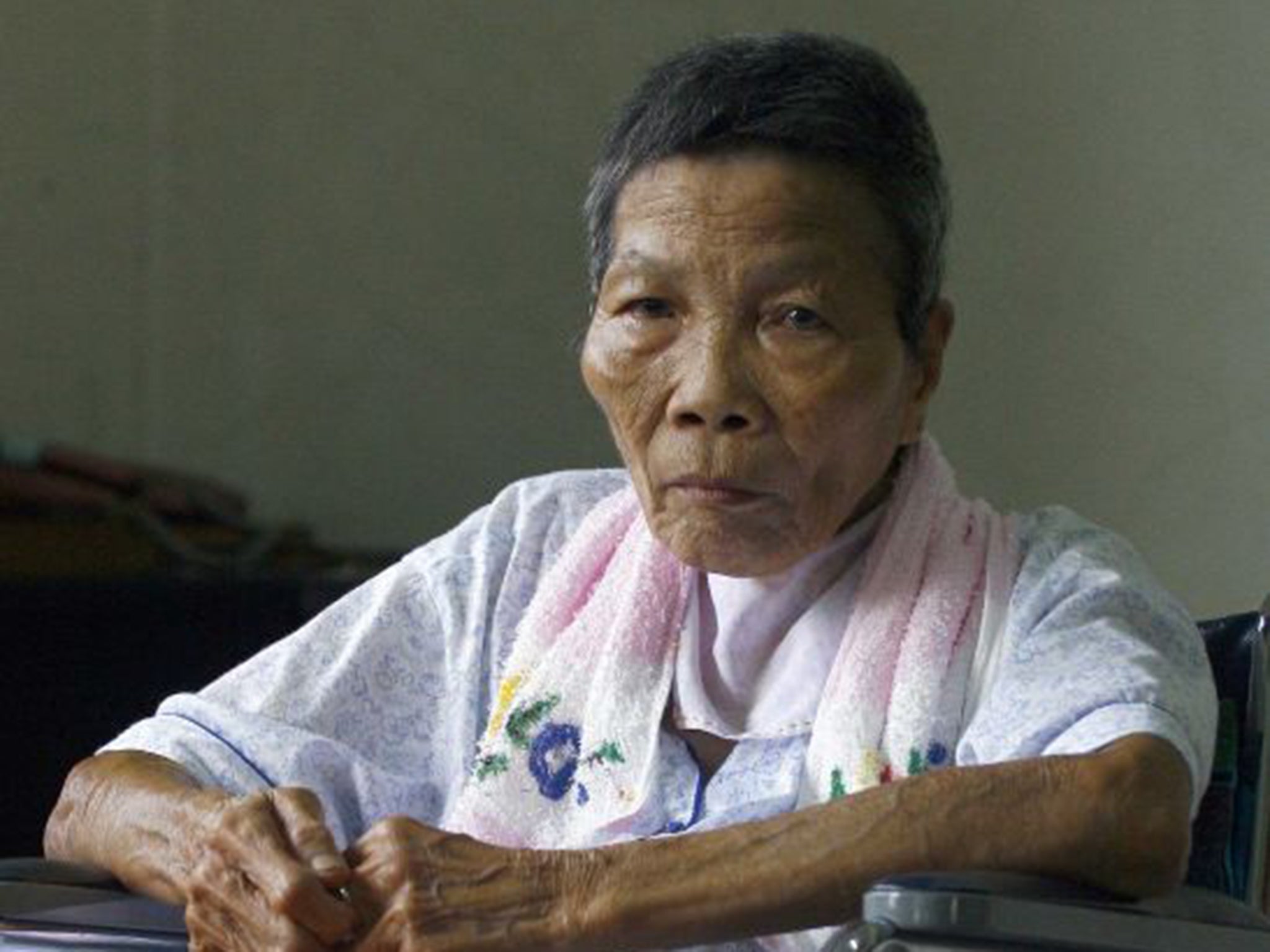Victims' relatives take patrol's killing of 24 civilians to Supreme Court
David Connett

A protest in Kuala Lumpur in 2008 over the Batang Kali killings
(AFP/Getty)
SBritain’s failure to investigate the role of the Army in a massacre of 24 unarmed civilians in Malaysia will be challenged in a landmark Supreme Court case this week.
In the case, the culmination of a 66-year battle for justice, relatives of victims of the Batang Kali killings during the “Malayan Emergency” in 1948 will demand the British government be held to account for its repeated refusal to investigate the shootings.
The outcome has important ramifications for the UK’s duty to investigate historical incidents where British security forces have shot civilians. It could also further establish the extent to which the military is subject to human rights laws. Earlier this month, seven former defence chiefs of staff argued that British forces should be exempt from “creeping legal expansion on to the battlefield”.

Lim Ah Yin, relative of a massacre victim, in 2012
(AFP/Getty)
In the incident, dubbed Britain’s My Lai – after the 1968 Vietnam War atrocity when US soldiers murdered hundreds of unarmed civilians – a 14-man Scots Guards patrol entered the Batang Kali rubber plantation in Selangor state, a British protectorate. The soldiers, with a guide and two colonial police officers, rounded up more than 50 villagers, separated men from women and children, detained them in huts overnight, and began interrogating both groups about communist guerrillas operating locally. Interrogations included simulated executions, witnesses claimed.
The next morning the women and children were driven a short distance away, by lorry. The men’s hut was then unlocked and within minutes all 23 of the men were shot dead after allegedly attempting a mass breakout. One man had been shot the previous evening. The village was then burnt to the ground.
British authorities rejected subsequent demands for an inquiry, labelling the victims “bandits” and accepting the escape explanation.
In 1969, a member of the patrol told a newspaper the troops deliberately executed the villagers on the platoon commander’s orders. A further three soldiers admitted on oath to a subsequent Scotland Yard investigation that they executed the villagers under orders. Two said the Army instructed them to give the false explanation that the men had tried to escape.
Promoted stories
Detectives were poised to interview more Malaysian witnesses when the inquiry was closed in 1970. The investigating officer concluded: “At the outset this was politically flavoured.” The decision to terminate mid-investigation, he wrote, “was due to a political change in view when the new Conservative government came to office.” A 1993, a Malaysia Police investigation was closed after “virtually no assistance from UK authorities”. Relatives twice petitioned the Queen for an apology, without response, before launching their legal-inquiry battle.
Lawyers for the British government argued that it was not liable for the deaths, which occurred before Britain signed the Human Rights Convention, and that the troops were under Selangor, not UK, command.

Civilians lie dead in Batang Kali, in 1948
Surviving platoon members are not expected to face prosecution.
John Halford, of Bindmans solicitors, representing victims’ relatives, said: “The unarmed Chinese labourers slaughtered were British subjects living in what was then a British Protected State. Their killers were British soldiers, deployed by the British Cabinet to protect British interests. Despite all of this, the Government will argue the law demands no accountability whatsoever because the killings are somehow not Britain’s responsibility and happened a long time ago. We trust the Supreme Court to see through this sophistry... [and] not permit an atrocity committed by our troops to be condoned and covered up in our name.”
Last year the Appeal Court rejected the relatives’ legal arguments but, unusually, invited them to appeal to the Supreme Court to enable Britain’s highest court to bring UK law into line with more recent European Human Rights Court judgments. The relatives’ arguments would “probably succeed” in Strasbourg, the judges noted.

Tham Yong was an eyewitness to the massacre
(AFP)The case’s implications are such that Northern Ireland’s Attorney General, John Larkin QC, has intervened. If the Supreme Court rules the Government does have a duty to carry out fresh inquiries into such deaths, it is certain to spark calls for fresh investigations into a series of contentious killings in Northern Ireland. Yasmine Ahmed, of Rights Watch (UK), accused him of trying to close the door to public inquiries saying: “This case’s outcome will have considerable implications in Northern Ireland where many of the deaths that occurred during ‘The Troubles’ happened before the Human Rights Act in 1998. The UK has a legal obligation to investigate the unlawful killing of its nationals. It is vital there is a domestic law mechanism allowing for the enforcement of this and the accountability of actions of the state.
”.fotavgeia.blogspot.com

Δεν υπάρχουν σχόλια:
Δημοσίευση σχολίου